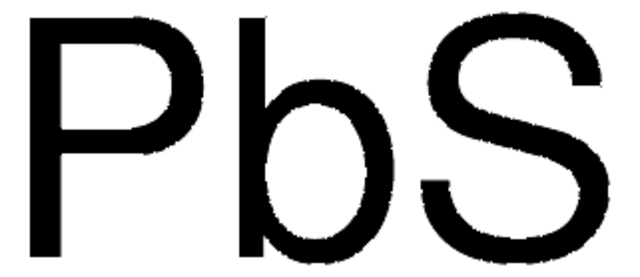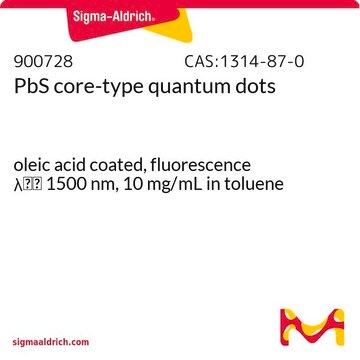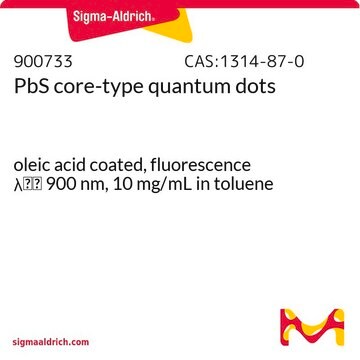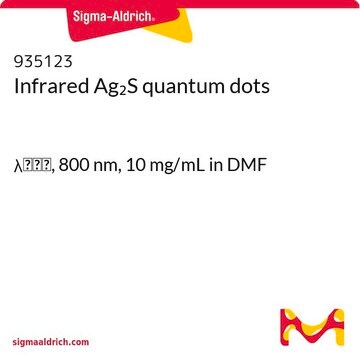935085
Infrared PbS quantum dots
λmax, 1650 nm, 100 mg/mL in toluene
Synonym(s):
Fluorescent nanocrystals, INFIQ® quantum dots, Lead based core type QDs
About This Item
Recommended Products
description
>6 peak/valley ratio
Quality Level
form
liquid
concentration
100 mg/mL in toluene
100 mg/mL
particle size
<15 nm (Nanoparticle)
λmax
<100 nm (FWHM)
1650 nm
storage temp.
2-8°C
InChI
1S/Pb.S
InChI key
XCAUINMIESBTBL-UHFFFAOYSA-N
Looking for similar products? Visit Product Comparison Guide
Related Categories
General description
Application
Legal Information
related product
Signal Word
Danger
Hazard Statements
Precautionary Statements
Hazard Classifications
Aquatic Chronic 2 - Asp. Tox. 1 - Flam. Liq. 2 - Repr. 1A - Skin Irrit. 2 - STOT RE 2 - STOT RE 2 Inhalation - STOT SE 3
Target Organs
Central nervous system
Storage Class Code
3 - Flammable liquids
WGK
WGK 3
Flash Point(F)
39.2 °F
Flash Point(C)
4 °C
Certificates of Analysis (COA)
Search for Certificates of Analysis (COA) by entering the products Lot/Batch Number. Lot and Batch Numbers can be found on a product’s label following the words ‘Lot’ or ‘Batch’.
Already Own This Product?
Find documentation for the products that you have recently purchased in the Document Library.
Our team of scientists has experience in all areas of research including Life Science, Material Science, Chemical Synthesis, Chromatography, Analytical and many others.
Contact Technical Service









